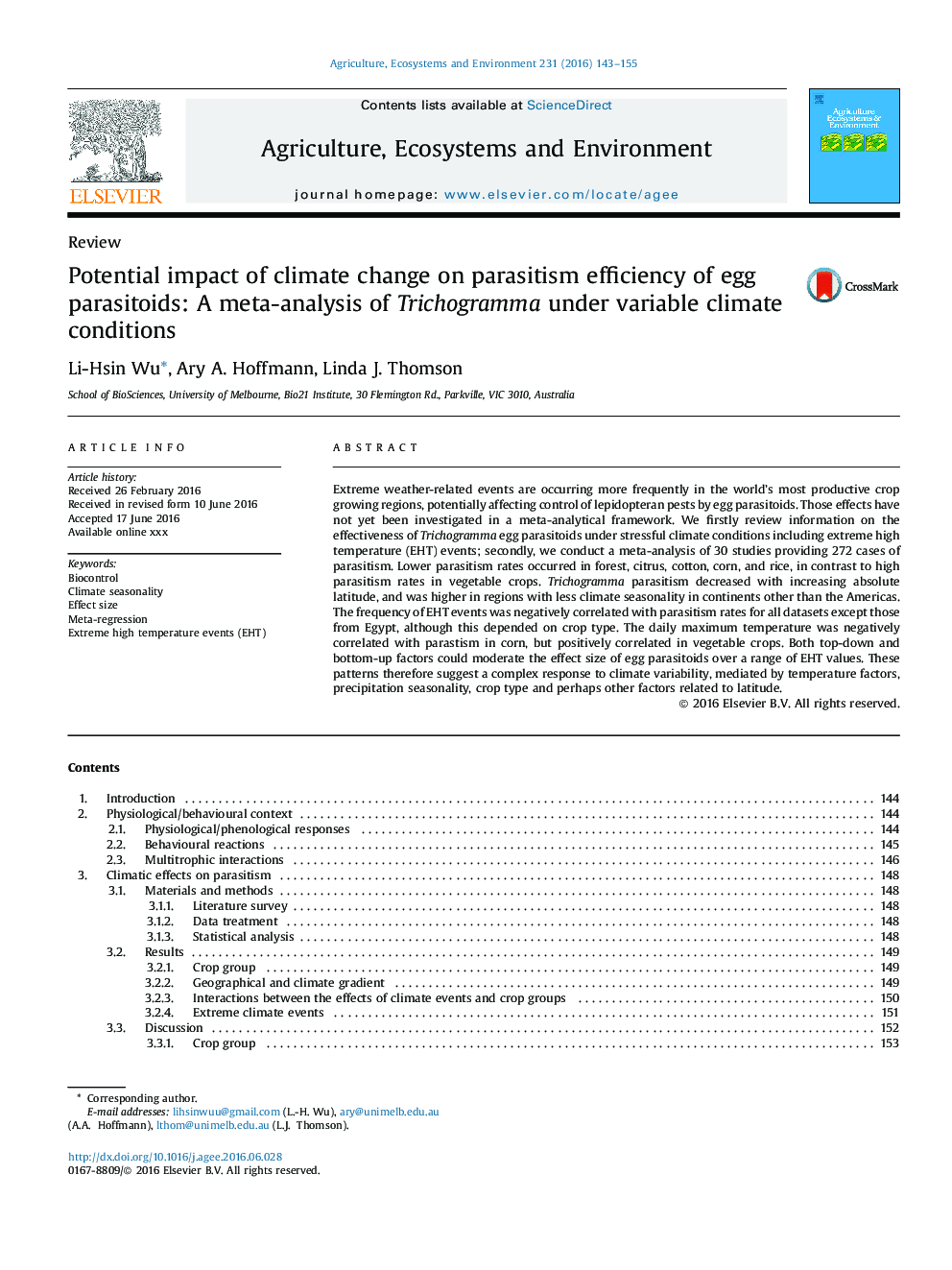| Article ID | Journal | Published Year | Pages | File Type |
|---|---|---|---|---|
| 8487349 | Agriculture, Ecosystems & Environment | 2016 | 13 Pages |
Abstract
Extreme weather-related events are occurring more frequently in the world's most productive crop growing regions, potentially affecting control of lepidopteran pests by egg parasitoids. Those effects have not yet been investigated in a meta-analytical framework. We firstly review information on the effectiveness of Trichogramma egg parasitoids under stressful climate conditions including extreme high temperature (EHT) events; secondly, we conduct a meta-analysis of 30 studies providing 272 cases of parasitism. Lower parasitism rates occurred in forest, citrus, cotton, corn, and rice, in contrast to high parasitism rates in vegetable crops. Trichogramma parasitism decreased with increasing absolute latitude, and was higher in regions with less climate seasonality in continents other than the Americas. The frequency of EHT events was negatively correlated with parasitism rates for all datasets except those from Egypt, although this depended on crop type. The daily maximum temperature was negatively correlated with parastism in corn, but positively correlated in vegetable crops. Both top-down and bottom-up factors could moderate the effect size of egg parasitoids over a range of EHT values. These patterns therefore suggest a complex response to climate variability, mediated by temperature factors, precipitation seasonality, crop type and perhaps other factors related to latitude.
Keywords
Related Topics
Life Sciences
Agricultural and Biological Sciences
Agronomy and Crop Science
Authors
Li-Hsin Wu, Ary A. Hoffmann, Linda J. Thomson,
